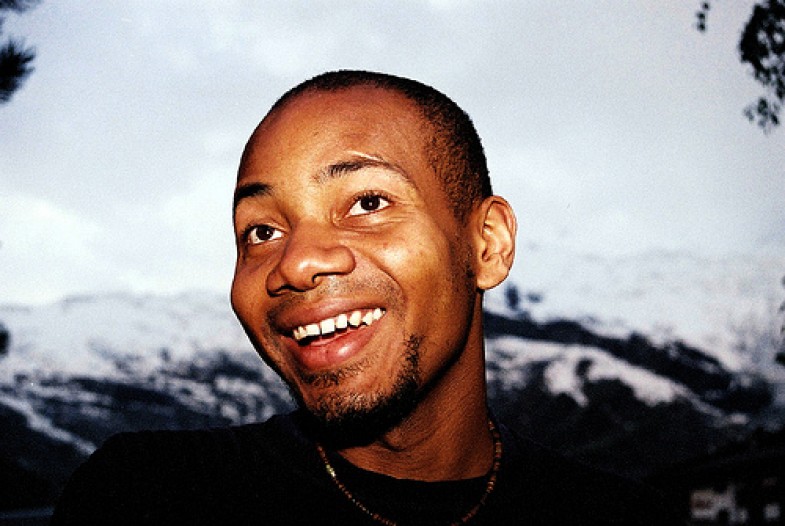COMMONS MAGAZINE

Paul Miller, a beret-wearing hip hop musician, is the living embodiment of collaboration. He performs and records as DJ Spooky (the name is taken from a character in William Burrough’s novel Nova Express). His CD remixes and deejay performances “steal” materials from every imaginable source — from Yoko Ono to Metallica to modern minimalist composer Steve Reich to Jamaican pop tunes of the ‘60s to to D.W. Griffith’s movie “Birth of a Nation” to Pacific Island traditions.
But he has earned his eclecticism honestly. He travels constantly to music-making subcultures around the world, from indigenous people to electronic music undergrounds, from Antarctica to Angola to a New Year’s Eve party on the beaches of Rio– and then produces something “new.”
At a commons conference in Austria, Miller gave out a variety of his remix CDs to the audience, and told them to check out the artists he had remixed and then trade them according to one’s taste. Want a Madonna remix instead of Public Enemy? Then trade with your neighbor, and get an informal social circuit going. That’s remix.
Miller deeply explores the philosophy and meaning of music sampling. This is reflected in the book Sound Unbound, an anthology of essays about music sampling by the likes of Sun Ra, Philip Glass, William Burroughs, and a few dozen others.
Miller points out the artificiality of “authorship” because in practice no one creates something entirely new. We are constantly borrowing from the past and from our peers, and then remixing it into something “new.” Why should the most recent individual “author” get all the credit for the work, as copyright law mandates?
Miller pointed out that societies that openly honor the re-use of works from the past are actually “keeping the past alive” through that re-use. New art becomes an ongoing conversation with our ancestors. By contrast, modern copyright-driven culture considers its past “dead,” which in a sense it is. We are impoverished by not being able to access the past freely and openly unless it is very old. (Copyright terms are now the lifetime of an author plus seventy years.)
From the book All That We Share: A Field Guide to the Commons, published by The New Press